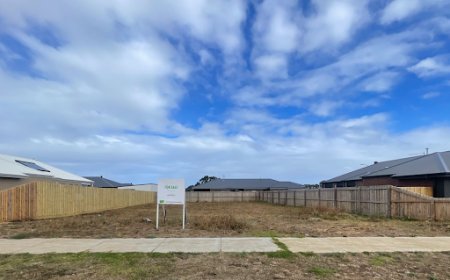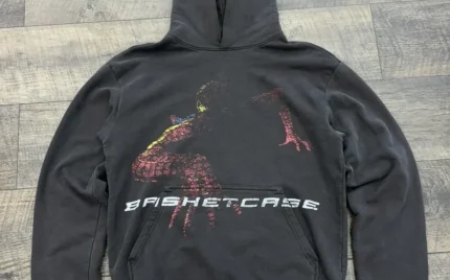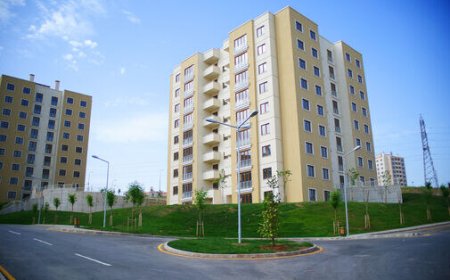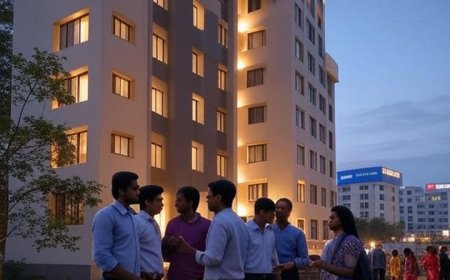How to Attend East Boston's Open Mics
How to Attend East Boston's Open Mics East Boston, a vibrant and culturally rich neighborhood nestled along Boston’s waterfront, has long been a hub for artistic expression, community connection, and grassroots creativity. Among its most dynamic cultural offerings are its open mic nights—unscripted, inclusive, and deeply authentic gatherings where poets, musicians, comedians, storytellers, and eme
How to Attend East Boston's Open Mics
East Boston, a vibrant and culturally rich neighborhood nestled along Bostons waterfront, has long been a hub for artistic expression, community connection, and grassroots creativity. Among its most dynamic cultural offerings are its open mic nightsunscripted, inclusive, and deeply authentic gatherings where poets, musicians, comedians, storytellers, and emerging performers take the stage to share their voices. Whether youre a seasoned artist looking for a new audience or a curious local eager to experience live creativity, attending East Bostons open mics offers more than just entertainmentit fosters belonging, sparks inspiration, and builds bridges across diverse communities.
Unlike polished, ticketed shows in downtown venues, East Bostons open mics thrive on raw authenticity. Theyre often hosted in cozy cafes, neighborhood bars, community centers, and even bookstores, where the energy is intimate and the atmosphere is welcoming. These events are rarely advertised through mainstream channels, making them easy to overlookbut deeply rewarding for those who find them. This guide is your comprehensive roadmap to navigating, participating in, and fully embracing the open mic scene in East Boston. From finding the right event to performing with confidence, youll learn everything you need to know to become a regularand valuedpart of this thriving cultural ecosystem.
Step-by-Step Guide
1. Identify Open Mic Locations and Schedules
The first step in attending East Bostons open mics is knowing where and when they happen. Unlike centralized citywide listings, these events are often organized by local business owners, artists, or community groups and may not appear on major event platforms. Start by focusing on venues known for hosting regular open mics. Key locations include:
- The Barking Dog A neighborhood staple with a loyal following, this bar hosts a weekly open mic every Wednesday night, featuring acoustic sets and spoken word.
- Easties Coffee House A community-centered caf that opens its stage every Thursday evening for poets, singer-songwriters, and storytellers. The owner often curates themed nights, such as Immigrant Voices or Youth Spotlight.
- La Casa de la Cultura A Latino cultural center that holds bilingual open mics on the second Saturday of each month, blending Spanish and English performances.
- The Harborview Library Community Room Hosts monthly Literary Nights open to all ages, with a focus on poetry and short-form storytelling.
- St. Anthonys Parish Hall Occasionally hosts community open mics on Sunday afternoons, especially during holidays or cultural festivals.
Dont rely solely on websites. Many hosts update schedules via Instagram, Facebook Groups, or word-of-mouth. Search for terms like East Boston open mic, Eastie poetry night, or Boston open mic local on social media. Join local groups such as East Boston Arts & Culture or Boston Open Mic Network on Facebookthese are often the most up-to-date sources for last-minute changes or special guest appearances.
2. Confirm Event Details Before You Go
Once youve identified a potential event, verify the details. Open mics can change venues due to weather, holidays, or private bookings. Always check for:
- Exact start time (some events begin at 7 p.m., others at 8 p.m.)
- End time (most wrap up by 10:30 p.m.)
- Registration process (is it first-come, first-served? Do you sign up at the door?)
- Cost (many are free, but some may request a $5$10 donation or have a drink minimum)
- Age restrictions (some venues are 21+, others are all-ages)
- Equipment provided (do they have a mic, guitar amp, or backing track support?)
Call ahead if possible, or send a direct message to the venues social media account. A simple, Hi, Id like to attend the open mic this Thursdaycan you confirm the time and if sign-ups are first-come? goes a long way. Hosts appreciate attendees who show up informed and respectful of their efforts.
3. Arrive Early and Sign Up
Arriving early is non-negotiable. Most open mics limit performers to 57 minutes per set, and slots fill quickly. If you plan to perform, arrive at least 3045 minutes before start time. Even if youre just attending, getting there early ensures you get a good seat, especially in smaller venues.
At most locations, sign-up happens at the door or at a table near the stage. Youll typically write your name, performance type (e.g., poetry, acoustic guitar, stand-up), and song title or piece name. Some hosts use a physical sign-up sheet; others use a digital form on a tablet. Be prepared to state your name clearly and confirm your time slot.
If youre nervous about signing up, remember: most open mics are beginner-friendly. Many hosts will encourage newcomers to go first to help ease nerves. Dont hesitate to ask, Is it okay if I go early?most will say yes.
4. Prepare Your Material
Whether youre performing or just listening, preparation enhances your experience. If youre performing:
- Keep your piece under 5 minutes. Most hosts enforce strict time limits to accommodate everyone.
- Practice aloud multiple times. Timing yourself helps avoid awkward pauses or rushing.
- Bring a printed copy of your poem or lyricssome hosts ask for it for their records or to avoid mishearing lyrics.
- Test your tech. If using a backing track, bring it on a phone with a headphone jack or Bluetooth speaker. Confirm if the venue has aux input or if you need to bring your own speaker.
- Have a backup plan. If your guitar string breaks or your phone dies, be ready to perform acapella or improvise.
If youre not performing, prepare to engage. Bring a notebook to jot down lines that move you. Open mics are not passive experiencestheyre communal rituals. The best attendees leave with new ideas, new friends, and new inspiration.
5. Respect the Space and the Performers
Open mics thrive on mutual respect. The stage is sacred. Even if youve heard the same poem three times before, listen with presence. Avoid talking during performances, checking your phone, or leaving mid-set. Applaud generouslynot just for the good acts, but for the brave ones who showed up.
Be mindful of noise levels. If youre drinking, sip quietly. If youre with a group, keep conversations hushed. Hosts often say, This isnt a barits a sanctuary for voices. Treat it as such.
After a performance, if you feel moved, say so. A simple That line about your grandmotherit broke me open means more than you know. Many performers leave with no feedback other than polite clapping. Your words can change someones week.
6. Network and Build Relationships
Open mics are as much about community as they are about performance. After the show, linger. Say hello to the host. Thank them for organizing. Introduce yourself to other performers. Ask, Whats your story? or How long have you been coming here?
Many East Boston artists have formed lasting collaborations through these spaces. A poet met a guitarist at Easties Coffee House and now tours the region as a duo. A high school student started a youth poetry collective after connecting with a mentor at La Casa. These connections dont happen at concertsthey happen in the quiet moments between sets, over coffee, or while cleaning up chairs.
Follow performers on Instagram. Like their posts. Comment meaningfully. Become part of their support system. In return, theyll likely invite you to future events, collabs, or even invite you to perform.
7. Return Consistently
Consistency is the secret sauce of the open mic scene. Showing up once makes you a guest. Showing up every week makes you family. Many hosts keep a list of regularsthey know whos reliable, who brings energy, who shows up even when its snowing.
Dont wait for the perfect moment to perform. Dont wait until youre ready. The open mic is where you become ready. The more you show up, the more youll grownot just as an artist, but as a person connected to a living, breathing community.
Best Practices
Be Authentic, Not Polished
East Bostons open mics arent about perfectiontheyre about truth. You dont need a flawless voice, a Grammy-worthy lyric, or a stand-up specials timing. What matters is your honesty. A shaky voice singing a song about losing a parent will move a room more than a technically perfect cover of a pop hit. Let your vulnerability be your strength.
Know Your Audience
Each venue has its own culture. At The Barking Dog, youll hear more rock and folk. At La Casa, expect bilingual poetry and salsa rhythms. At the library, expect quiet, introspective pieces. Tailor your material slightly to fit the space. A raunchy joke might land at a bar but fall flat at a community center. Observe first, then adapt.
Respect Time Limits
Hosts are not being cruel when they cut you off at 5 minutes. Theyre being fair. If you go over, you steal time from someone else whos waiting to be heard. Practice your piece with a timer. Have a clear ending. When the host gives you a signal, stop gracefully. A quick bow and Thank you is all you need.
Bring a Positive Attitude
Some nights, the room is packed. Others, its just you, the host, and one other person. Neither is a failure. The magic of open mics is that theyre not about turnouttheyre about intention. Show up with an open heart, regardless of the crowd. Your presence matters.
Support Other Artists
Dont compare. Dont judge. Dont think, Im better than that. Every performer is risking something. Applaud louder for the ones who seem nervous. Stay until the end. Share the event on your story. Tag the venue. Small acts of support create ripples.
Bring a Friend (But Not a Crowd)
Its great to bring one or two supportive friends. But avoid bringing a large group. It can make the space feel crowded and impersonal. Open mics are intimate by design. Too many people from one social circle can unintentionally shift the energy from communal to cliquish.
Leave the Venue Better Than You Found It
Help clean up. Pick up a napkin. Stack chairs. Thank the barista. These small gestures are noticedand remembered. The hosts are often volunteers. Your kindness keeps the lights on.
Document Your Experience (Responsibly)
Take photosof the venue, the crowd, the chalkboard signbut never of performers without permission. Some artists are private. Others are recording their sets. Ask first: Is it okay if I take a picture?
Write about it afterward. Journal what moved you. Share a quote. Post a photo with the venues hashtag. Your documentation helps others find these spaces. It also helps you track your own growth.
Tools and Resources
Essential Apps and Websites
- Facebook Events Search East Boston open mic and filter by date. Join local groups like East Boston Community Events or Boston Open Mic Scene.
- Instagram Follow hashtags:
EastBostonOpenMic, #EastiePoetry, #BostonOpenMic, #BostonPoetrySlam. Many hosts post weekly updates here first.
- Meetup.com Occasionally lists open mics under Arts & Culture in East Boston. Less reliable than social media, but worth checking.
- Eventbrite Rarely used for regular open mics, but sometimes hosts special themed nights (e.g., Holiday Open Mic or Poetry for Peace).
- Google Maps Search open mic East Boston and read recent reviews. People often mention great vibe, host was so kind, or first time performer, felt welcome.
Recommended Equipment
If you plan to perform regularly, invest in a few essentials:
- Portable Bluetooth speaker For backing tracks if the venue doesnt have sound support. A small, battery-powered one like the JBL Flip 6 works well.
- Quality microphone adapter If youre using a phone, get a 3.5mm to USB-C/Lightning adapter for clearer audio.
- Printed copies of your work For the host and for your own reference. Use a clean, legible font.
- Small notebook and pen To jot down ideas, feedback, or song titles you hear.
- Reusable water bottle Stay hydrated. Many venues dont offer free water.
Local Organizations to Connect With
These groups often sponsor or support open mics:
- East Boston Neighborhood Development Corporation (EBNDC) Hosts cultural programming and can connect you with venue partners.
- Boston Poetry Union Offers workshops and lists regional open mics, including East Boston.
- Massachusetts Cultural Council Provides microgrants for emerging artists; check their calendar for funding opportunities tied to open mic events.
- East Boston High School Arts Program Often collaborates with local venues for youth open mics.
Books and Media for Inspiration
Read these to deepen your connection to spoken word and performance:
- Spoken Word Revolution by Mark Eleveld A collection of powerful poems from the slam scene.
- How to Write One Song by Jeff Tweedy A gentle guide to creating from the heart.
- Black Girl Magic by Mahogany L. Browne Poetry that celebrates identity and resilience.
- The Poet X by Elizabeth Acevedo A novel-in-verse that captures the power of voice.
Real Examples
Example 1: Marias First Performance
Maria, a 68-year-old retired nurse from the Dominican Republic, had never performed in public. She wrote poems in Spanish about her journey to Boston, her children, and the loneliness of losing her husband. A friend told her about La Casas bilingual open mic. She showed up with her poems printed in both Spanish and English. She was the first to sign up. Her voice shook as she read, but the room fell silent. When she finished, the applause lasted longer than any other set that night. A local teacher approached her afterward and invited her to lead a weekly poetry circle for seniors. Maria now leads that group every Tuesday. I didnt know my words mattered, she says. But they did. They just needed a place to land.
Example 2: Jamals Comeback
Jamal, a 22-year-old college student, used to perform rap at high school slams. After a breakup and a mental health crisis, he stopped writing for two years. He stumbled into The Barking Dog one rainy Wednesday, not to perform, but to listen. He heard a man play a guitar piece about grief. It cracked him open. The next week, he returned. He signed up. He played a song hed written in his bedroomno rhythm track, just voice and fingers on strings. He didnt finish it. He stopped halfway, cried, and said, Im not ready yet. The host nodded. Youre exactly where you need to be. He came back the next week. And the next. Now, he performs every month. Hes starting a mental health and music initiative for young men in East Boston.
Example 3: The Youth Collective
Four high school students from East Boston HighAisha, Leo, Tariq, and Reneattended an open mic at the Harborview Library. They loved how quiet the room was during poems. They asked the librarian if they could start a youth open mic. She said yes. They designed flyers, made a sign-up sheet, and invited their friends. The first night, 12 people showed up. Now, its a monthly event with 40+ attendees. Theyve partnered with local artists to host workshops on spoken word, beatboxing, and zine-making. One of their members was invited to perform at the Boston Public Librarys annual youth arts showcase.
Example 4: The Unplanned Collaboration
At Easties Coffee House, a poet named Diego read a piece about his fathers immigration story. A guitarist named Lena, who had been listening quietly, played a melody that echoed the rhythm of his words. Afterward, she approached him. That line about the border wallit made me think of a chord progression. They exchanged numbers. Two weeks later, they performed together: his words over her music. Theyve since released an EP titled Borderlands. They credit that open mic for changing their lives.
FAQs
Do I have to perform to attend an open mic?
No. Many people attend just to listen. Open mics are for audiences as much as they are for performers. Your presence, your attention, and your applause are vital.
Is there an age limit?
It varies. The Barking Dog is 21+. Easties Coffee House and the library are all-ages. Always check the venues policy. Some events are specifically for teens or seniors.
Can I bring my own instrument?
Yes. Most venues welcome acoustic instruments. Electric instruments are trickiercheck ahead. Some places have amps; others dont. If youre unsure, call or message the host.
How do I know if Im good enough to perform?
You dont need to be good enough. You just need to show up. The open mic is not a competition. Its a space for expression. The only requirement is courage.
What if Im nervous?
Everyone is nervouseven seasoned performers. Take deep breaths. Arrive early. Talk to the host. Ask if you can go first. Most hosts will help you feel safe. Remember: the room wants you to succeed.
Can I perform in Spanish or another language?
Absolutely. East Boston is a multilingual community. La Casa de la Cultura actively encourages it. Other venues welcome it too. If youre bilingual, consider reading in both languages. Its powerful.
What if no one claps after my set?
It happens. Sometimes the room is quiet because theyre moved, not because theyre unimpressed. Dont take it personally. Thank the host. Come back next week. Your voice matters, even if the silence feels heavy.
Can I record my performance?
Only if you ask. Some venues allow it. Others dont. Always get permission from the host and from other performers before recording. Respect privacy.
How do I find out if an event is canceled?
Check the venues Instagram or Facebook page the day of. Many hosts post updates there. If youre unsure, send a quick message: Is the open mic on tonight? Most respond within an hour.
Are there any open mics on weekends?
Yes. La Casa holds events on the second Saturday. The Harborview Library sometimes hosts Sunday afternoons. The Barking Dog occasionally does weekend jam nights. Check social media regularly.
Can I host my own open mic?
Yes. Many started as one-person efforts. If you have a spacea caf, a bookstore, a living roomyou can organize one. Reach out to East Boston Arts & Culture for guidance. Theyll help you find performers, promote the event, and connect you with local artists.
Conclusion
Attending East Bostons open mics is more than a cultural activityits an act of belonging. In a world that often feels fragmented, these gatherings remind us that voice matters. That listening is sacred. That art doesnt need a stage or a spotlight to be powerfulit just needs a room full of hearts willing to be present.
Whether you come to perform, to listen, to heal, or to connect, you are welcome here. You dont need to be famous. You dont need to be polished. You dont need to have it all figured out. You just need to show up.
Find a venue. Arrive early. Sign upor dont. Listen with your whole self. Applaud like you mean it. Stay for the whole night. Say hello to someone new. Come back next week.
East Bostons open mics are not just events. They are living archives of resilience, joy, grief, and hope. They are where the neighborhood speaks its truthand where, if youre brave enough, youll find your own voice echoing back to you.
Go. Be heard. Be present. Be home.

































